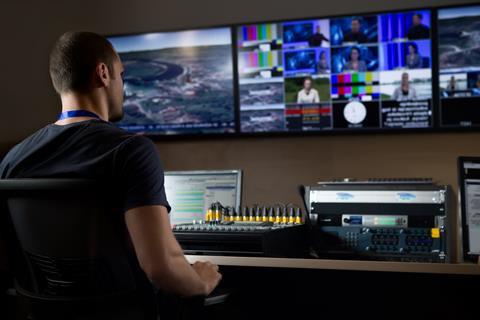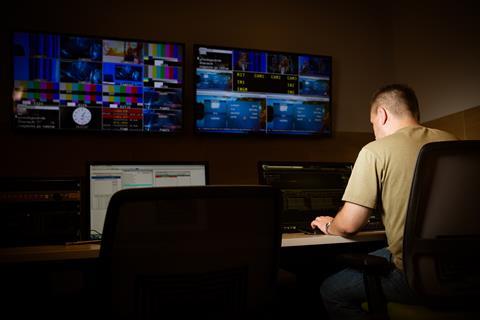IT-based broadcasting is continually evolving and engineers face new challenges in key growth areas such as IP-based production and cybersecurity. John Maxwell Hobbs breaks down the resources at hand to help broadcast engineers stay on top of their game.
Beginning with the first non-linear computer-based editing systems back in the late 1990s, broadcast engineering has been evolving into a more IT-centric discipline. As IP protocol is rapidly becoming embedded in the full signal chain from glass to glass, the nature of the role of a broadcast engineer is changing dramatically. As the industry continues to evolve, the ability of engineers to adapt to new technologies and methodologies will be critical to their success and the success of their organisations.

Traditional electromechanical engineering skills
When considering how the skills required for a broadcast engineer have evolved, historically, they’ve needed a solid understanding of:
Electrical and electronic fundamentals: Knowledge of analogue signal processing, understanding of electronic circuits, and the ability to troubleshoot hardware issues. Knowledge of radio frequency (RF), Ohm’s law and how to use a multimeter and a soldering iron were key skills needed.
Electromechanical systems: Expertise in dealing with physical broadcast systems, such as tape decks, film cameras, transmitters, antennas, and signal routing equipment. Often the judicial application of a hammer or spanner was all that was needed to ensure a programme made it to air.
Maintenance and repair: Skills in maintaining and repairing broadcast equipment to ensure continuous operation. Maintenance engineers needed a complete understating of electronics, mechanics, and analogue signal flow to ensure all the kit was kept in working order.
Read more ISE 2024: Lorenzo Zanni on how the industry can play to its strengths to help combat skill shortages
IT-based approach skills
With the shift to digital, traditional broadcast engineering skills are still required, but they have expanded to include:
Networking and IT infrastructure: A deep understanding of network architectures, protocols, and standards (such as TCP/IP, DNS, and DHCP) is now essential. Broadcast engineers must know how to design, manage, and troubleshoot networked systems that support audio and video streaming. We are now in the era of cameras, microphones and even lighting instruments having IP addresses and Wi-Fi connections.
Software proficiency: Familiarity with software-based production tools, automation systems, and content management systems. Skills in scripting and programming (e.g., Python, Bash) can be beneficial for automating tasks and integrating systems.
Cybersecurity: As broadcasting systems become more connected, the importance of securing these systems against cyber threats increases. Knowledge of cybersecurity best practices, threat detection, and response mechanisms is critical to protect against content piracy and ensure that audiences’ personal data is kept secure.
Cloud technologies: Understanding cloud-based broadcasting solutions, including cloud storage, processing, and software-as-a-service (SaaS) platforms. More and more of the production chain is moving to the cloud, either on-prem or off-prem. This includes managing virtualized resources and services that are becoming increasingly prevalent in modern broadcasting environments.
Bridging the gap
The world of IT-based broadcasting is a developing one and is undergoing rapid development and change. It is important for individuals to play an active role in their own professional development to stay competitive. For engineers transitioning from a traditional to an IT-based role, continuous learning and professional development are key. This includes:
Certifications and training: Pursuing certifications in networking (e.g., CCNA), cloud technologies (e.g., AWS Certified Solutions Architect), cybersecurity (e.g., CompTIA Security+), and other IT domains.
Hands-on experience: Practical experience through projects or collaboration with IT departments within existing organisations can provide valuable insights into the IT aspects of broadcasting.
Education: Advanced degrees or courses in computer science, information technology, or related fields can help build a theoretical foundation in IT principles.
Read more NMOS Control project: what does the latest development mean for IP production?
Key strategies for transition
Broadcast engineers looking to make the transition from using traditional approaches to mastering skills in the new digital media world can explore a variety of strategies and resources to adapt to the evolving landscape. The industry has begun to recognise the need for current professionals to update their skill set to include IT and digital capabilities alongside their traditional RF know-how.
This transition requires a commitment to continuous learning on the part of both broadcasters and engineers to stay abreast of emerging technologies, such as IP-based infrastructure, cloud computing, and cybersecurity. Online courses, workshops, and seminars offered by educational institutions and professional bodies can provide valuable knowledge and skills.
1. Leverage industry training programmes: Several industry organisations offer training programmes aimed at equipping both new entrants and existing professionals with modern broadcast technology skills. These include the Society of Broadcast Engineers, the IABM, and the EBU Academy. They offer both online and in-person courses, many of which offer certification.
2. Seek mentorship: Mentorship can offer practical advice, technical knowledge, and career development tips tailored to navigating the digital transition. The Society of Broadcast Engineer’s mentor program is an excellent way for broadcast engineers to receive guidance and insights from experienced professionals in the field. The Institute of Engineering and Technology (IET) also offers a mentorship programme. For women looking for mentorship in the media technology sector, Rise offers a free mentoring scheme.
3. Obtain relevant certifications: Certifications can validate IT and digital media skills to employers. Look into certifications related to network administration, cybersecurity, cloud services, and other relevant areas.
4. Participate in industry forums and conferences: Engaging with the broader broadcast engineering community through forums, conferences, and workshops can provide insights into industry trends, emerging technologies, and best practices. Networking with peers can also open up opportunities for collaboration and learning.
Read more Donna Smith at Rise: Recruitment and Skills for Women in Broadcasting

Resources
For broadcast engineers looking to reskill in digital media, there are several Continuing Professional Development (CPD) courses and resources available that cater to the evolving needs of the industry. These courses range from foundational knowledge in digital media and IP networking to more specialized areas like video editing and web technologies for broadcast.
The IABM offers several technical training courses designed to help broadcast engineers adapt to the rapidly evolving media technology landscape. These courses are aimed at providing the skills and knowledge required to navigate the shift towards IP-based broadcasting, as well as understanding the fundamentals of audio and video in the digital age.
1. IP Network Essentials for Engineers: A two-day course that lays the groundwork in networking fundamentals, focusing on packet-switched data transport over common infrastructure. This course emphasizes Ethernet (layer 2) and Internet Protocol (layer 3), aiming to equip engineers with the essentials of enterprise networks and media applications over network infrastructure.
2. Advanced IP Networks for Engineers: This two-day course builds on the IP Network Essentials for Engineers course, giving more detail on the protocols involved in streaming video across IP networks. It includes practical exercises on building networks to deliver unicast video streams and explores the resilience of the network in delivering video streams.
3. Audio and Video Fundamentals for Engineers: This course covers how images and sound are converted into signals and transmitted through the broadcast chain, from acquisition through production, distribution, and delivery. It addresses the technology used in broadcasting, the packaging of audio and video ‘essence’ into computer files with metadata, and the mechanisms of content delivery to audiences.
The EBU Academy offers courses tailored for broadcast engineers looking to reskill, focusing on current industry challenges and innovations. Each course is designed to provide practical knowledge and skills that are directly applicable to the field, ensuring engineers stay at the forefront of broadcast technology and many include certification.
1. Live IP Essentials: This online course teaches the basics of IP technology from a media perspective. It covers the different layers that make up an IP network and focuses on the elements that are specific to a media production infrastructure.
2. Preparing Your Move to Live IP TV Production: This master class has been created to support broadcasters make the transition to a full live IP production environment. The course addresses live IP production methods and technologies, and covers media transport over IP networks, audio over IP, the SMPTE 2110 protocol, and security issues among other topics.
3. Cybersecurity: The EBU also offers three courses on cybersecurity, with specific areas of focus for media managers, broadcast engineers, and chief security officers.
Q3 Media Training provides formal training sessions on a range of topics, specializing in broadcast technology and workflows. They offer courses that are tailored to suit specific requirements, and training can be provided in-office or at arranged conference venues. Popular courses include TR-1001 IP Media Networks, Broadcast Engineering Essentials, Practical Introduction to IP Networking, and Broadcast Video & Technology for Developers, among others.
Engineers Ireland also provides CPD and career development opportunities, with a wide range of technical and non-technical training available. While their focus is broader, encompassing various engineering disciplines, they offer digital training courses and other resources that can be beneficial for broadcast engineers looking to expand their skill set in digital media and related technologies.
For broadcast engineers, acquiring IT skills is crucial due to the evolving nature of media production, which increasingly relies on digital, networked, and cloud-based technologies. These skills enable engineers to design, implement, and maintain the complex IT infrastructures that modern broadcasting demands, ensuring efficient content delivery across multiple platforms. Additionally, IT proficiency enhances an engineer’s ability to innovate, adapt to new technologies, and address cybersecurity challenges, keeping them relevant and competitive in a rapidly changing industry.
Read more London Academy of Music & Dramatic Art to offer virtual production training
























No comments yet